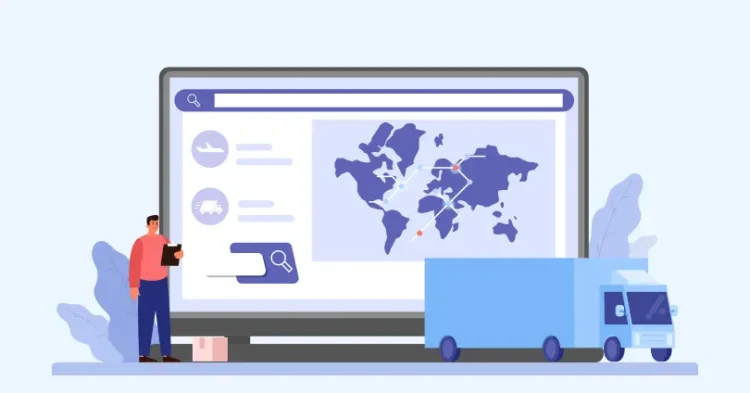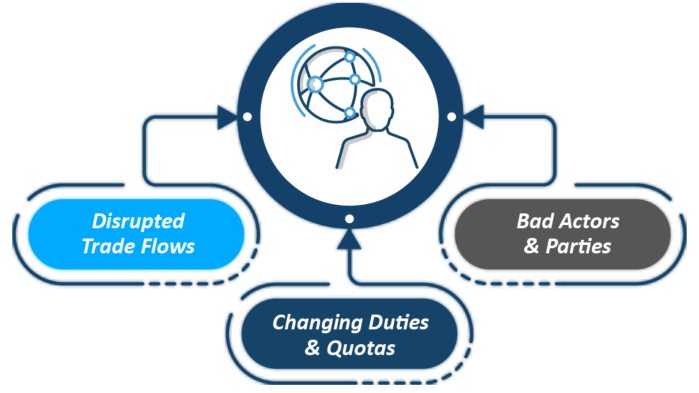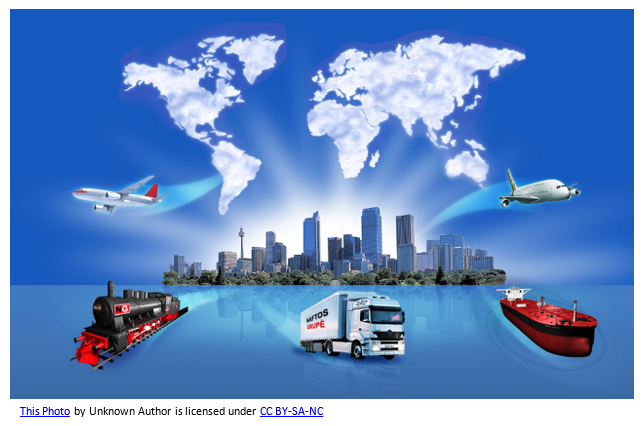Today’s manufacturing and distribution businesses face greater challenges than ever when it comes to supply chain management. They need solutions for streamlining logistics that leverage the power of modern technology to reduce costs, manage risks, and become more adaptable in the face of supply chain disruptions. Oracle’s logistics solutions can help.
Oracle has been providing supply chain management (SCM) and logistics software to major industry players for years and has established a name for itself in diverse industries. The company’s Oracle Fusion Cloud Transportation Management system provides a range of capabilities to overcome SCM challenges. Business leaders can find general information about Oracle Transportation Management elsewhere, though.
Why It Matters

The past several years have seen greater levels of supply chain volatility than anyone expected, creating not just major logistics challenges but also increased costs and negative impacts on companies’ customer relationships both in the context of B2B and B2C business models. Streamlining logistics operations with the help of specialized AI-driven tools makes it possible for companies to regain a level of stability even in the face of large supply and demand fluctuations and potential supply chain disruptions.
New Tools for Streamlining Logistics
Oracle has developed a suite of new tools for managing transportation and global trade. They address logistics challenges, thereby reducing costs and enhancing customer experience. Some of the more impressive new capabilities of Oracle Transportation Management include the following.
Intelligent Transit Time Predictions
Even before the past few years upended the stability of global supply chains, it was difficult to accurately predict transit times. Both macro-level delays caused by extreme weather or general issues at the airport and those that occur on a network level because of things like labor shortages can have dramatic impacts.
Oracle’s newly developed machine learning algorithm takes those and other potential disruptions into account to offer more accurate transit time estimates. Companies able to better predict delivery times can avoid costly delays that cause the need for additional expenses like expedited shipments and maintaining safety stock.
Improved Shipment Capabilities

Automating transportation processes for shipments allows Oracle users to optimize logistics workflows according to the state of their supply chains. Simplifying the processes required to combine and track multiple shipments and analyze global trade agreements cuts back on freight costs, reduces human errors, and prevents internal shipment delays.
New Analytics Capabilities
Not all of the important new technologically driven changes to Oracle Transportation Management happen entirely behind the scenes. The company has also improved the program’s analytics capabilities so that customers can more easily interpret transportation data. Getting a more accurate read on what the data has to say offers key insights for logistics planning personnel and enables informed business decisions.
Who Can Benefit From Oracle’s Products?
Oracle Transportation Management was designed to provide an end-to-end platform for companies that need to manage transportation activity throughout their supply chains more efficiently and effectively. Companies that source goods, parts, or materials from overseas will benefit from the program’s global trade and transportation features, but it’s an appropriate solution for domestic companies. Oracle Transportation Management is also designed to integrate seamlessly with the company’s E-Business Suite.
Benefits of Using Oracle Transportation Management

Oracle Transportation Management (OTM) is a logistics management software that offers a wide range of features to help organizations streamline their transportation operations. The benefits of using OTM are many, including operational efficiency, cost savings, improved customer satisfaction, and supply chain resilience.
Operational Efficiency
According to technologyevaluation.com, OTM can help organizations optimize their transportation planning, execution, and visibility. The software provides real-time information on transportation activities, enabling organizations to make informed decisions about routing, scheduling, and mode selection. This leads to improved operational efficiency and better utilization of resources. Additionally, OTM can automate several manual processes, reducing the time and effort required to manage transportation operations.
Cost Savings
One of the key benefits of using OTM is cost savings. By optimizing transportation planning and execution, OTM can help organizations reduce transportation costs. This can include savings on fuel, labor, and other operational expenses. Additionally, OTM can help organizations reduce the number of empty or partially loaded trucks on the road, leading to further cost savings.
Improved customer satisfaction
OTM can help organizations improve their customer satisfaction by providing better visibility into transportation activities. Customers can track their shipments in real-time, reducing uncertainty and improving delivery time accuracy. Additionally, OTM can help organizations proactively manage exceptions and resolve issues before they become problems, leading to better customer service.
Supply Chain Resilience

OTM can help organizations improve their supply chain resilience by providing real-time information on transportation activities. This enables organizations to quickly identify and respond to disruptions, such as weather events or traffic congestion, reducing the impact on their supply chain. Additionally, OTM can help organizations quickly adapt to changes in demand or supply, ensuring that they can continue to meet their customers’ needs.
Implementation of Oracle Transportation Management
The successful implementation of Oracle Transportation Management (OTM) is essential for organizations looking to streamline their transportation operations. The implementation process for OTM involves several key steps, including planning, design, and deployment. Here are some guidelines for a successful OTM implementation:
Planning

The planning phase of the implementation process involves defining the scope of the project and identifying the key stakeholders. During this phase, organizations should establish their goals and objectives for implementing OTM, and develop a project plan that outlines the key milestones and deliverables. Additionally, organizations should identify the resources that will be required for the implementation, such as hardware, software, and personnel.
Design
The design phase of the implementation process involves configuring the OTM software to meet the organization’s specific requirements. During this phase, organizations should work closely with their implementation team to define the workflows and business rules that will be used in OTM. Additionally, organizations should configure the system to integrate with their existing transportation and supply chain management systems.
Deployment
The deployment phase of the implementation process involves testing and deploying the OTM software. During this phase, organizations should conduct thorough testing to ensure that the system is functioning as expected. Additionally, organizations should provide training to their users to ensure that they are comfortable with the new system and know how to use it effectively.
How to Choose a Transportation Management System
Not sure if Oracle Transportation Management will provide the best solutions? There’s no need for business leaders to make decisions based on intuition alone. They can compare Oracle’s products to other industry-leading solutions online and determine which will be the best fit.







